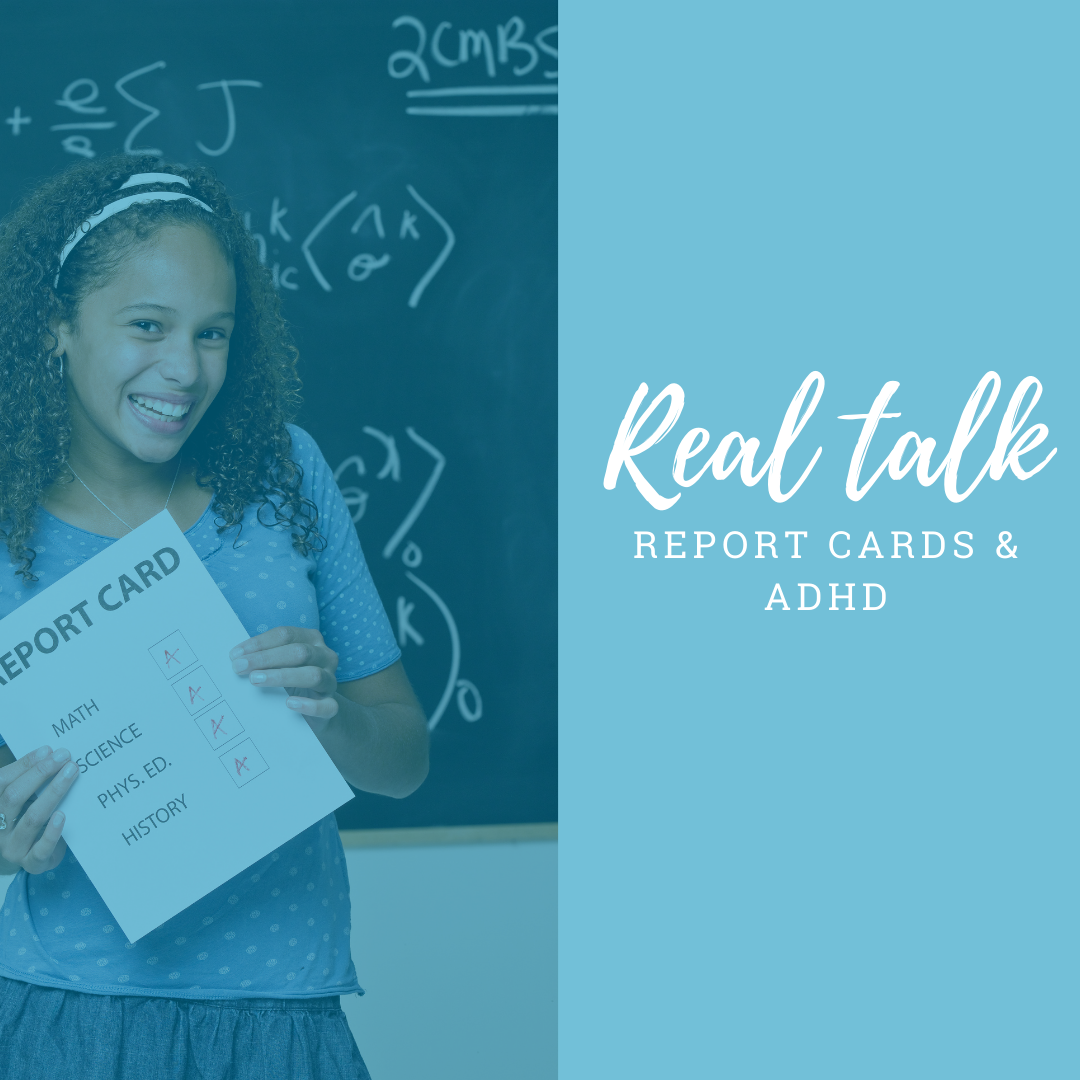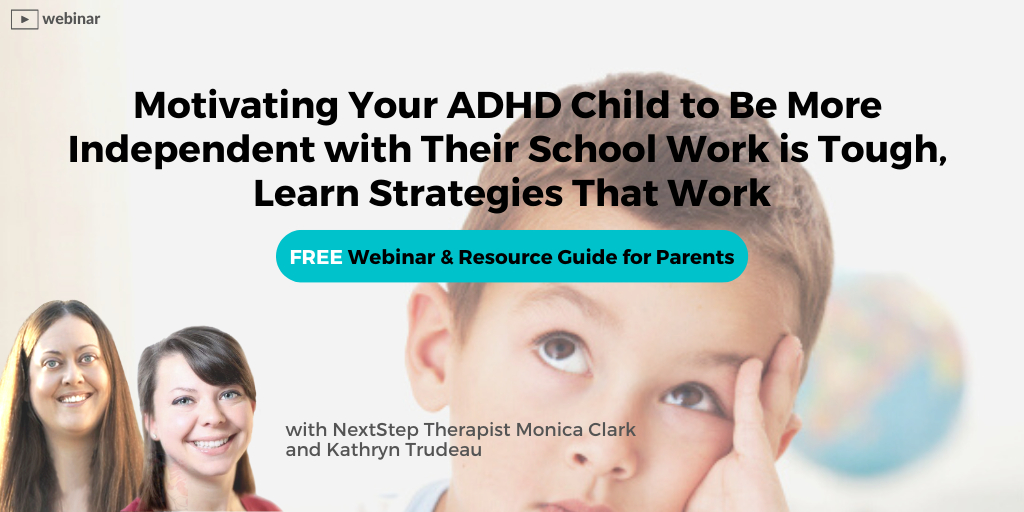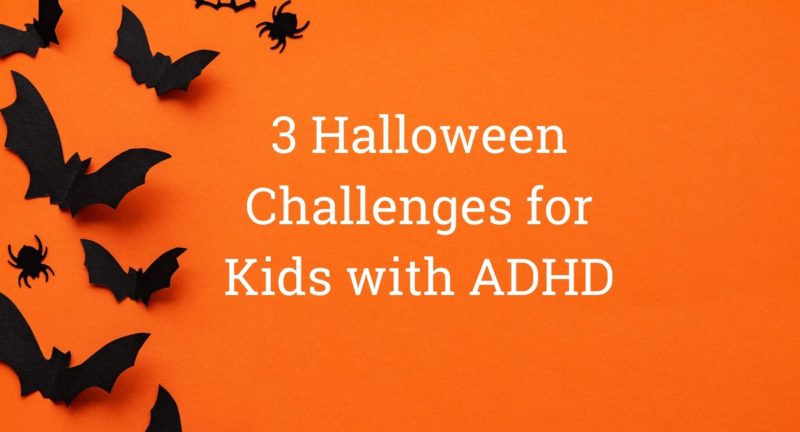
What to Do If ADHD Is Impacting Your Child’s Report Card
It’s no surprise that having ADHD can be challenging for adults. There are adults who find it difficult to manage (or event start) projects at work. Other adults may struggle to organize a household budget or calendar system. However, ADHD challenges aren’t limited to adults; children and teens may find that the challenges of ADHD can impact academic performance.
How does ADHD impact grades? Inattention is one of the biggest predictors of academic struggles, according to a study published in the journal Frontiers in Psychology.
If you suspect that ADHD is impacting your child’s academic performance, we recommend that you take your child for an assessment. Getting an accurate diagnosis is the first step in managing ADHD — and improving grades. As a full-service clinic, we offer all that your child needs from the initial diagnosis to medication management to parent coaching to therapy — and more.
In the meantime, we created this guide to help you prepare for conversations about bad grades.
When Your Child’s Report Card Surprises You…

Receiving a surprising report card can be upsetting for you, but keep in mind that your child may be upset too.
If your child comes home with bad grades, you might wonder how to talk about it. Here’s what you can do:
Tip #1: Give It Time
The first thing you want to do is to make sure you do not react in the moment. It’s tempting to want to express your frustration immediately. However, give yourself time to think and reflect.
Tip #2: Schedule a Time to Talk with Your Child
Instead of diving into the conversation about ADHD and grades, schedule it. Consider saying, “Let’s sit down together after dinner and talk about this, okay?”
Scheduling a time to talk gives you time to think and avoid hasty punishments.
Tip #3: Avoid the “I’m Disappointed” Tactic
It’s a classic scene.
A child hands over a report card to his parents, the parents scan the report card, and reply, “I’m really disappointed in you. I expected better grades.” You’ve probably seen this scenario played in TV shows or movies.
But this isn’t necessarily the best response to a bad grade.
Telling your child that you’re disappointed in his or her grades might work as a short-term motivator to bring grades up, but there are a few problems with this method.
- It focuses all of the attention on your feelings
- It encourages kids to work harder and get better grades just to avoid parental disappointment
- It ignores the importance of intrinsic motivation
TIP: We want kids to do better because they want to do better. Doing good in school or improving a bad grade feels good, and this is a good opportunity to teach the value of intrinsic motivation.
So what should you do? Instead of focusing on your feelings, ask your child how she or he feels about the grades. We’ll cover this in the next section.
Tip #4: Plan Your Words & Create a Calm, Warm Atmosphere
Now that you’ve scheduled your talk with your child, what do you say?
Avoid all “you” statements. Instead, try “I noticed that…” . Eliminating “you” statements can alleviate feelings of blame — and this opens the door to a more open, honest conversation.
TRY IT OUT LOUD: “I noticed that your chemistry grade is lower than we both thought it was going to be. Can you help me understand what happened here?”
The above sentence is much more approachable than this one: “You did not do well in chemistry at all. This grade is completely unacceptable.”
WHY IT WORKS: The phrase, “Can you help me understand,” gives your child a chance to explain his thoughts and what potentially contributed to the grade.
Listen to what your child has to say. Depending on your child’s age, she or he might have a lot of feelings about a bad grade. He might feel embarrassed to talk about it. She might feel surprised or confused, especially if she thought she was on track for a better grade.
Keep these tips in mind:
- Take your time. Don’t feel obligated to fill the silence. Let your child think for a few moments.
- Know that your child might say “I don’t know how I feel” and that’s a start. Remember your child or teen may not fully realize how ADHD impacts grades.
- Reassure that you’re not judging — simply trying to get to the root of the problem so you can help.
After your child responds, re-state what he said. Try saying, “It sounds like you’re having a difficult time with chemistry formulas, and it’s making you frustrated.” By stating your child’s feelings, you’ve demonstrated that you’re on his or her team. Plus, you’ve demonstrated a key component of emotional regulation — stating the feeling.
To continue the conversation, ask, “What do you think you need to do to improve your chemistry grade?” This is an important question. It creates a sense of accountability and teaches your child the importance of creating solutions to his or her problems. If your child helps to create the solution, he’s more likely to follow through.
Tip #5: Think Through Punishments and Consequences
It can be tempting to punish a child or teen for a bad report card, but punishments given in the spur of the moment are likely to be severe. Plus, severe punishments don’t necessarily teach the right lessons. But how do you give consequences for bad report cards? Do you punish bad grades? Reward the good grades?
Let’s go back and first explore what punishments are.
In psychology, there are two types of punishments:
- Negative punishments: something is taken away (like video game time) to decrease the unwanted behavior (bad grades)
- Positive punishments: something is added to the situation (like extra chores or even yelling) to decrease the unwanted behavior (bad grades)
There is a downside though. Punishments may work — but for the wrong reasons. For example, a child may work to improve grades to avoid getting yelled at, or getting grounded. This doesn’t teach your child why good behaviors are good and why the unwanted behaviors are bad.
Enter: Positive Discipline
To recap: Punishment describes methods of control, gained by enforcing rules and punishing undesired behavior. On the other hand, positive discipline is “a way of teaching and guiding children by letting them know what behavior is acceptable in a way that is firm, yet kind.” Positive discipline relies on the power of teaching.
In fact, the word discipline literally means “to teach.”
In other words, the consequences of bad report cards should be appropriate. Many parents are tempted to remove kids from sports, but research shows that this isn’t the most efficient solution. Activities like this are good for physical health, but they also boost confidence.
Instead, try linking other privileges (like extra video game time) with academic progress. You can use when/then statements to do this.
Here’s an example:
When your chemistry report is completed thoroughly and with care, then you may play your video game for X minutes.
Tip #6: Comment on the Good Grades, Too
Even if your immediate focus is on a less-than-stellar grade, don’t forget to comment on the good grades too.
- You studied really hard for your English exam, and it paid off.
- I can see that you worked really hard to bring your English grade up. Nicely done!
- Wow, your history grade is impressive. Tell me about your class. What did you enjoy learning?
Bonus: Always focus on progress — not perfection.
Tip #7: Brainstorm Ways to Improve Grades Together
Pam Valdes, a Certified Positive Discipline Parent Educator, weighs in on the topic of ADHD and grades:
“Remind your child that ADHD can make certain tasks more difficult, but emphasize that these are skills that can be learned.”
Pam continues, “Brainstorm ways to improve grades together. You’ll have to find what works for them, and you are there to help. Meet with each of your child’s teachers to obtain details about their school habits. Does the teacher have any ideas of the root of the problem? Are assignments turned in on time? Does your child seem to understand the subject matter? Work with teachers to solve problems and share your plan for working with your child at home.”
Tip #8: Nurture Your Relationship
When it comes to working through any problem (whether that’s bad grades or not), it’s important to continue to nurture your relationship.
Pam shares, “Focus on your relationship with your child. It’s important to have some positive 1:1 time every day. That warm, loving relationship will go a long way in helping them to trust you and be open with you about their school problems.“
Supporting Your Child’s Academic Progress at Home
 Whether your child is learning in a traditional or virtual school setting, you can continue to support your child’s academic career at home. One of the best ways to support your child is to identify any potential obstacles, including untreated or undertreated ADHD. Any child can experience a bad grade here or there, but ADHD symptoms like inattention can make school more challenging.
Whether your child is learning in a traditional or virtual school setting, you can continue to support your child’s academic career at home. One of the best ways to support your child is to identify any potential obstacles, including untreated or undertreated ADHD. Any child can experience a bad grade here or there, but ADHD symptoms like inattention can make school more challenging.
The best way to support your child with ADHD is to make sure that his or her ADHD symptoms are adequately managed. Don’t hesitate to reach out if your child’s treatment plan is no longer working.
There are other things you can do to support your child’s academic success:
- Establish a weekly time to “check in” with your child and talk about school.
- Establish a homework routine and homework station.
- Teach your child to prepare his/her backpack and assignments the night before.
- Brush up on study skills (i.e., setting designated study time, etc.)
- Get organized (together): use charts, folders, planners, binders, etc.
Most importantly, proactive support can help get ahead of the curve. If you help your child manage ADHD, implement solid study skills, and create an effective homework station, then you’re setting your child up for success.
Motivating Your Child to Work on School Work
When it comes to ADHD and grades, increasing motivation goes a long way. Throughout this article, we’ve discussed the importance of intrinsic motivation. This is a helpful skill for kids, but it’ll be useful far into adulthood too.
Explore this article and discover six tips for motivating your child.
Need help motivating your child to complete homework? Enroll in our FREE course, “Motivating Your Child to Work Independently.”
ADHD and Grades: What Can Mental Health Care Providers Do to Help?
ADHD treatment can improve all aspects of your child’s life, including academic success.
Here at Next Step 4 ADHD, we take multidisciplinary and holistic approach to your child’s ADHD treatment. Whether your child needs medication management, therapy, or a combination, we can guide you with your next steps. We also support YOU, which is why we offer parent coaching — to help you discover proven strategies to motivate and encourage children with ADHD.
To make an appointment for ADHD treatment, call us at 502-907-5908. You can also schedule a FREE 20-minute coaching consult to see if coaching is right for you.
Related Posts
3 Halloween Challenges for Children with ADHD
Halloween is right around the corner, and for many kids, it's one of the most...
How to Help Your Child with Homework
As a parent of a child with ADHD, you're no stranger to the challenges that come...



